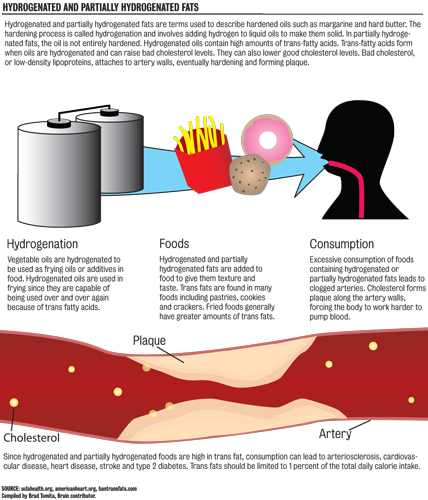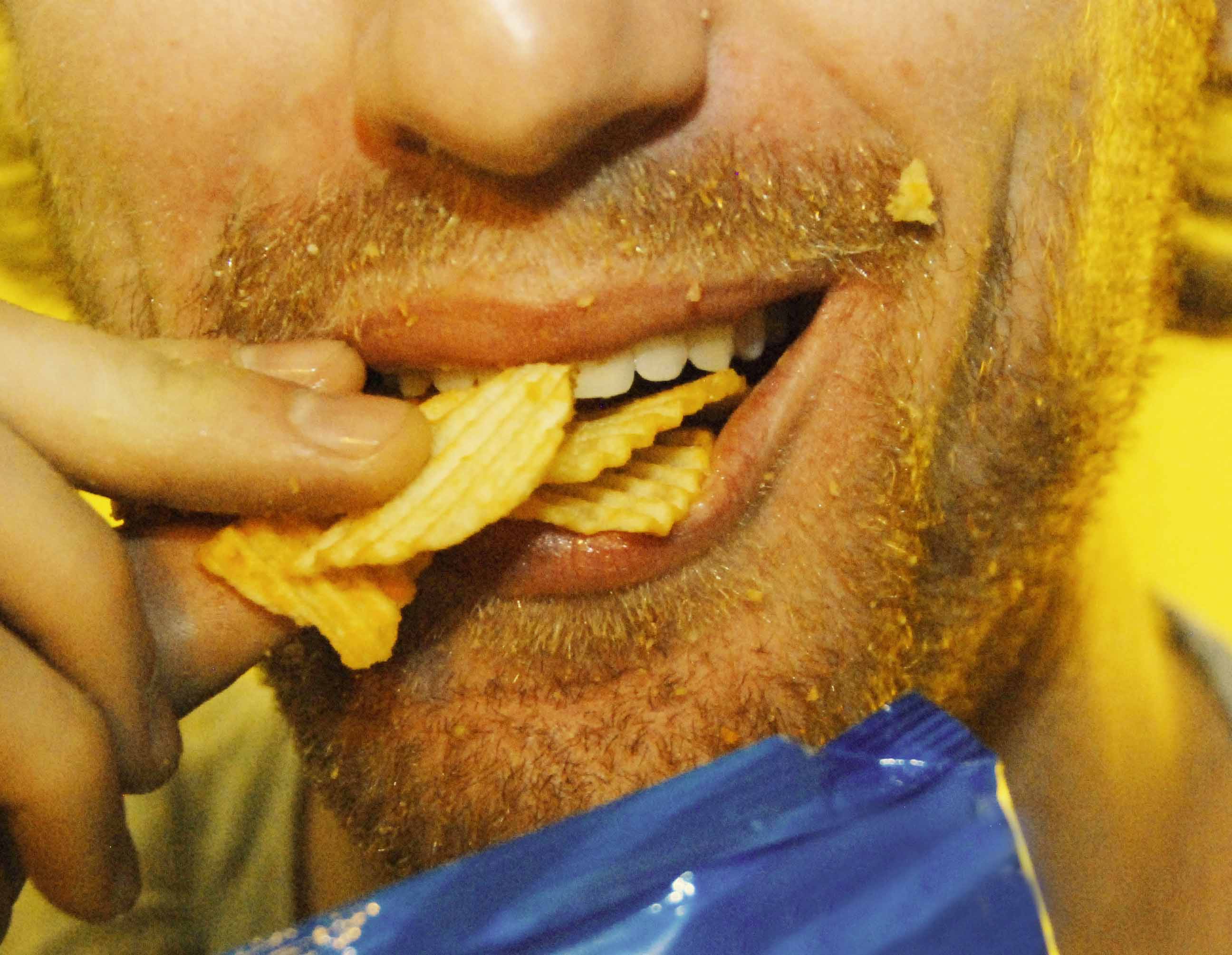
As the first state to ban the use of trans fats in restaurants, California will now prohibit eateries from using this notoriously unhealthy ingredient.
Trans fats, also known as trans-fatty acids, have earned a negative reputation among avid healthy-food shoppers and eaters in recent years.
In July 2008, Gov. Arnold Schwarzenegger signed the bill to outlaw trans fats in restaurants. The bill, which went into effect on New Year’s Day, puts strict limits on violators, who can face heavy fines. The bill specifically bans oils, margarines and shortenings containing more than 0.5 grams of trans fats per serving. California bakeries, however, have until the start of 2011 to eliminate their use of trans fats. Packaged foods in grocery stores are unaffected by this legislation.
Dana Hunnes, a cardiac dietitian at the Ronald Reagan UCLA Medical Center, described trans fats as “very prevalent” in today’s society.
“It’s all over the place. It’s in grocery stores, convenience stores, airports. … They’re in some baked goods, from cupcakes to donuts,” Hunnes said.
Trans fats, which are a byproduct of partially hydrogenated fats, pose several health risks. To maintain good health, eating nutritious, fresh foods will contribute to a healthier lifestyle, UCLA professionals said.
“Trans fats are synthetic fats created by the food industry to prevent liquid fats like oils from going rancid,” said Alona Zerlin, a registered dietitian at the UCLA Center for Human Nutrition.
Zerlin said the food industry is allowed to state that foods contain zero trans fats when there is less than 0.5 grams of trans fats per serving. As a result, consumers who eat more than one serving of these certain foods will be consuming trans fats, she added.
Partially hydrogenated fats originate from the addition of hydrogen to vegetable oils, thereby resulting in a more solid fat to extend shelf life, Zerlin said. These fats are a synthetic structure, which is man-made. Because these fats are very rigid, it is harder for the body to excrete them, Zerlin added.
Hunnes said that partially hydrogenated fats are solid at room temperature, creating multiple health concerns.
“How you see (fats) on a table ““ that’s how it looks like in your body,” she said.
When fats are in liquid form, they do not attach to the arteries and restrain blood flow. When fats are hard, however, they attach to the walls of the arteries and create inflammation. As calcium builds up in the arteries, the circumference of the arteries will decrease, making it more difficult for blood to flow through, Hunnes said.
Hunnes added that fully hydrogenated fats contain no trans fats. While fully hydrogenated fats are not as healthy as unsaturated fats, they are not nearly as bad as the trans fats from partially hydrogenated fats, she said.
Trans fats also increase total blood cholesterol, decreasing the healthy cholesterol, ““ called high-density lipoprotein ““ and increasing the bad cholesterol ““ called low-density lipoprotein, Hunnes said. Trans fats stay in the blood stream for a long time, but they eventually oxidize in the body’s system and are metabolized by the liver, she added.
Several other concerns about trans-fats consumption include the increase for risk of heart disease, Alzheimer’s and obesity, Hunnes said.
Students should avoid pre-packaged convenience items like baked goods and deep-fried foods, as well as sweets like cakes and donuts, Hunnes said.
“Basically the best thing you can do (is) maintain your weight. If you’re overweight, lose weight. Eat healthier; eat whole grains, fruits and vegetables. Sushi is a good choice, as long as it’s not fried. (Eat at) the salad bar, definitely exercise, go for a walk, go to the gym ““ those are all good things to do to maintain good health,” Hunnes said.
Dr. Zhaoping Li, a professor of clinical medicine at UCLA, said the key message for everyone, particularly young people, is to eat whatever the body’s genes are fit for, which is specifically a plant-based diet with plenty of fruits and vegetables.
Despite the negative health effects of consuming trans fats, Li said she prefers not to single out one or two ingredients in foods as the root of society’s health problems.
“It’s the whole picture. If you have a bowl of ice cream and on the top you put a fresh cherry, … it does not make it a healthy snack; it does not change the fundamentals. … You (still) have all the (unhealthy) sugars, the starch, other kinds of fat, (and) also low-intake of vegetables, fruit and healthy meats,” she added.
